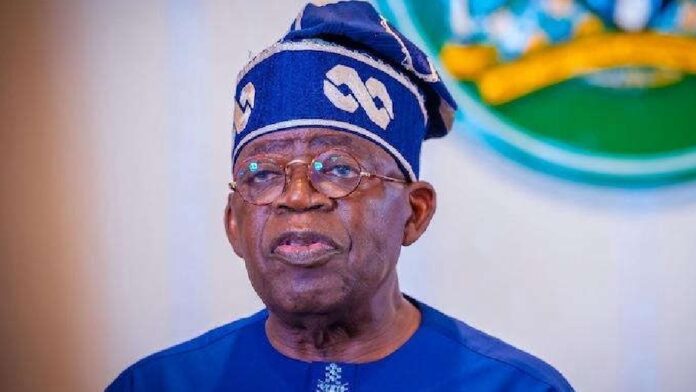By Shu’aibu Usman Leman
In recent weeks, Nigeria has once again been gripped by anxiety following reports of an alleged coup plot within the military. Several media outlets claimed that between sixteen and twenty officers had been arrested for conspiring to overthrow the civilian administration of President Bola Ahmed Tinubu.
The Defence Headquarters swiftly denied the reports, describing them as “false and baseless” and urging Nigerians to ignore them. Yet, the denial did little to ease public concern—especially after the sudden dismissal of the nation’s service chiefs. Within days, General Christopher Musa, Vice Admiral Emmanuel Ogalla, and Air Marshal Hassan Abubakar were all replaced. Government sources described the move as routine, intended to strengthen national security and improve efficiency. But for many Nigerians, the timing seemed too coincidental. The unease was not cynicism—it was the reflex of a people who have learned, through hard experience, that rumours in Nigeria’s political climate rarely arise from nowhere.
While the President’s power to appoint or dismiss service chiefs is unquestionable, context matters. In a democracy, perception can be as powerful as policy. Silence during moments of uncertainty breeds suspicion, which speculation quickly fills.
As Premium Times (24 October 2025) noted, the absence of coordinated communication after the Defence Headquarters’ rebuttal only deepened confusion. Denials must be backed by credible, transparent briefings. In today’s digital age, where misinformation spreads faster than facts, official silence—however well-intentioned—often fuels the fire it seeks to contain.
Lessons from the Past:
Nigeria’s history offers sobering reminders. Every coup or attempted coup began as whispers dismissed as mischief until the first gunshot shattered complacency. In January 1966, subtle discontent among officers culminated in the violent overthrow of Sir Abubakar Tafawa Balewa’s government. The 1975, 1983, and 1985 coups followed a similar pattern—rumours denied, then confirmed by force.
Each intervention promised reform but delivered repression. Nigeria paid dearly in lost freedoms, weakened institutions, and wounded democratic spirit. The enduring lesson is clear: secrecy and speculation are an explosive mix. When citizens lose faith in official narratives, trust collapses and conspiracies thrive.
Building Trust Through Transparency: Today’s Nigeria is not that of 1983. Since the return to civil rule in 1999, the military has made commendable strides in professionalism and constitutional loyalty. Training institutions, civil–military engagement, and regional peacekeeping have strengthened democratic discipline. But progress must be sustained through transparency, merit, and welfare—not decrees or fear.
Military loyalty flourishes when command structures are credible and leadership is just. Soldiers who are well-trained, fairly treated, and properly equipped see democracy as worth defending. Neglect, however, breeds resentment—and resentment is fertile ground for rebellion.
Economic Pain and Public Apathy:
Nigeria’s political stability is under strain from economic hardship. Inflation soars, insecurity lingers, and the cost of living suffocates the poor. BBC News Africa (26 October 2025) reported that many Nigerians reacted to the coup rumours with troubling indifference—even muted approval. That apathy is a warning sign: when citizens lose faith in government, they stop defending democracy.
Democracy must not only endure—it must deliver. Citizens’ trust grows from bread-and-butter governance: food, jobs, justice, and security. When hunger stalks the land, lofty speeches about democracy ring hollow.
A Regional Cautionary Tale:
Recent coups in Mali, Guinea, Burkina Faso, and Niger demonstrate that military takeovers never lead to true renewal. Each began with promises of national rescue and ended in authoritarianism, economic collapse, and isolation. Soldiers who can seize power cannot easily govern nations. Nigeria must reject any nostalgia for “disciplined” dictatorship—it was never discipline; it was deception.
The Media’s Role in Democratic Defence: The media stands as democracy’s first line of defence. Its duty is not to echo power but to interrogate it—not to inflame but to inform. Nigeria’s journalists have a proud legacy of courage, from The Guardian to Newswatch and Tell, who resisted censorship under military rule. That heritage must not be squandered on sensationalism or unverified reports.
In a digital era where misinformation spreads faster than bullets, journalists must serve as a compass of truth. Verification, balance, and context are moral imperatives. An undisciplined press can ignite panic; a responsible one can preserve peace.
Shared Responsibility: Government, Military, Media:
The government must communicate openly, the military act professionally, and the media report truthfully. When these three pillars hold firm, democracy stands unshaken.
If the recent reshuffling of service chiefs was preventive, it may reflect strategic foresight—but foresight must be matched by openness. Stability, like sunlight, thrives in transparency.
Restoring Trust:
Ultimately, the issue at stake is trust. Democracy cannot rest on legality alone; it draws strength from legitimacy. When trust erodes, even honest actions are misread. The government must rebuild trust through empathy, explanation, and example.
The media, in turn, must serve as a mirror—neither distorted nor dimmed by bias. Where silence persists, journalists must demand answers, not with malice but with patriotic insistence.
Despite the turbulence, Nigeria’s democracy endures—tempered by history, sustained by citizens’ resolve. But endurance is not enough. To thrive, democracy must evolve: by listening, reforming, and delivering.
Security is not merely the absence of violence; it is the presence of confidence—confidence that the state will act fairly, speak truthfully, and protect all equally.
This moment should not provoke fear but reflection. Democracy survives only through vigilance—from leaders, soldiers, journalists, and citizens alike.
Nigeria has travelled too far, and sacrificed too much, to turn back now. Our republic will not be guarded by secrecy or strength alone, but by the enduring light of transparency—for in the end, only truth can truly guard the nation.
Lema is a former National Secretary of the Nigeria Union of Journalists ( NUJ).










